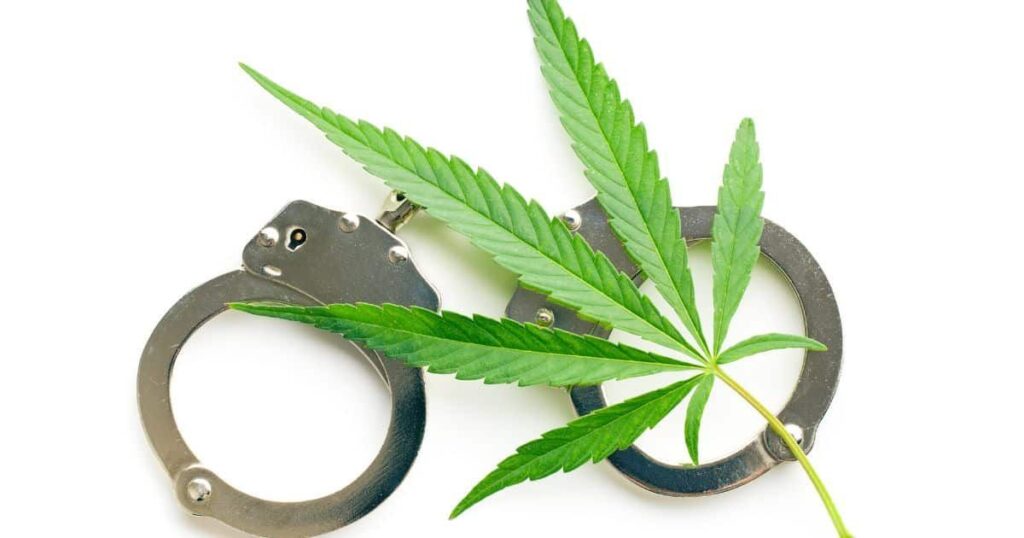Maryland is making a statement on justice, equity, and the ongoing impact of the failed war on drugs. Governor Wes Moore recently built upon his efforts to address the inequities of cannabis criminalization by issuing pardons for an additional 6,938 individuals convicted of simple cannabis possession.
This follows last year’s ground-breaking clemency order, where over 175,000 marijuana-related convictions were pardoned. Maryland is creating a blueprint for other states to follow as it works to rectify the systemic injustices caused by decades of discriminatory drug policies.
Cannabis Pardons Are A Step Toward Justice and Equity
The war on drugs has left a devastating legacy, disproportionately affecting communities of color and exacerbating systemic inequalities. Cannabis criminalization, in particular, has targeted marginalized communities, leading to staggering arrest rates, long-term incarceration, and lasting barriers to housing, education, and employment opportunities.
Governor Moore’s actions make it clear that leaders must take accountability and implement reform to address past policy failures. With these additional pardons, Maryland is not only addressing the harm caused by criminalization but also giving thousands of individuals the opportunity to rebuild their lives free from the stigma of a criminal record.
With nearly half of the United States now allowing recreational marijuana, this move represents a natural progression toward justice and reform.
State officials and advocates alike recognize this as more than just a policy change; it’s a step toward societal progress. The Maryland Judiciary is actively working to remove these pardons from public view by January 31, 2026, in alignment with Governor Moore’s Expungement Reform Act.
This initiative will further eliminate obstacles for those seeking employment and housing, paving the way for economic and personal growth among those affected.
Maryland’s Unmatched Commitment to Clemency
Governor Moore’s achievements highlight Maryland’s commitment to achieving justice on an unprecedented scale. The executive clemency order from last year is notable for its size and impact, making it the most comprehensive pardon effort for cannabis-related convictions in U.S. history. This year, the government pardoned nearly 7,000 more individuals, showing a continued commitment to righting past wrongs and ensuring no one is left behind.
The outcomes of these decisions extend far beyond individual pardons. They serve as a framework for other states navigating the complexities of integrating social justice initiatives into cannabis reform. By combining legislative and executive actions, Maryland’s actions highlight the importance of systemic change to dismantle the inequities left in the wake of the war on drugs.
Maryland’s efforts reflect a larger movement for change across the United States. According to NORML, elected officials and courts nationwide have issued over 350,000 marijuana-related pardons and more than two million marijuana-related expungements since 2018.
While progress continues, many states still struggle to implement justice-focused cannabis reform.
“Governor Moore’s progressive leadership on righting the wrongs of cannabis criminalization in Maryland is commendable,” said NORML Development Director JM Pedini. “Hundreds of thousands of Americans across the nation are still stigmatized by past convictions that most US jurisdictions now no longer consider a crime. Given the overwhelming popularity with voters, clearing marijuana-related records should be a justice priority in every state that has yet to do so.”
Public sentiment is certainly in support of these changes. Polling data consistently shows that the majority of Americans support cannabis legalization, expungements, and broader efforts to undo the harm of past policies. This public demand represents an urgent call to action for states yet to enact similar measures.
Maryland as a Model for Future Cannabis Pardons and Policy
Other states should look to Maryland as a model for how to integrate equity into cannabis reform. By prioritizing pardons, expungements, and investments in communities disproportionately affected by criminalization, Maryland has demonstrated that justice and opportunity can coexist.
Beyond just pardoning convictions, Maryland is fostering a more inclusive and equitable society through initiatives like the Just Community designations and the Expungement Reform Act. These additional state-supported programs aim to address the systemic economic and social disadvantages rooted in discriminatory policies like redlining and over-incarceration.
By taking these steps, Maryland illustrates that cannabis reform isn’t just about legalizing recreational use; moreover, it’s about reckoning with historical injustices, actively repairing the harm they’ve caused, and creating a foundation for a more just and equitable society.
Despite the encouraging progress in Maryland and a handful of other states, however, much work remains to dismantle the systemic damage caused by the war on drugs. With cannabis now legal for medical or recreational use across much of the country, the persistence of cannabis-related criminal records for millions of Americans is inexcusable.
Maryland is setting a standard for how states can move forward. This includes granting clemency on a wide scale, investing in impacted communities, and ensuring that everyone benefits from the transition to a more equitable cannabis policy landscape.
For states that have legal access to cannabis but have not yet implemented broad pardon or expungement programs, the message is clear: it’s time to step up.
From Maryland’s example, it’s evident that such actions yield benefits that extend well beyond the individual, creating stronger communities and a more equitable economy.
Building a Path Toward a Just Future
Governor Moore’s leadership in Maryland provides hope for a more equitable future. Moreover, his administration’s efforts represent an acknowledgment of past harms and a dedication to rectifying them. Now it’s up to the rest of the country to take note and take action.
For those still waiting to clear criminal records and receive community support, Maryland’s inspiring progress offers hope. However, it also reminds us that much more work remains. Other states now have a well-lit road to follow; the question is whether they’ll have the courage to walk it.

















